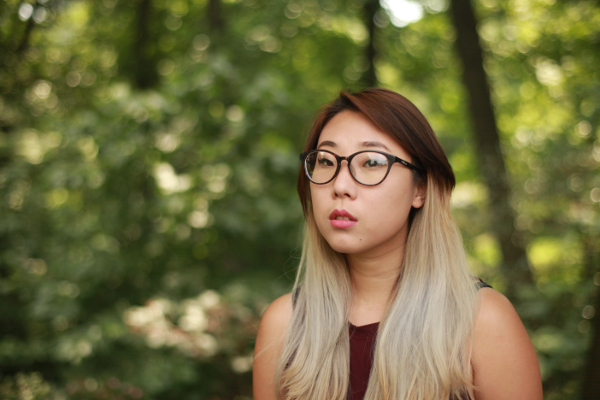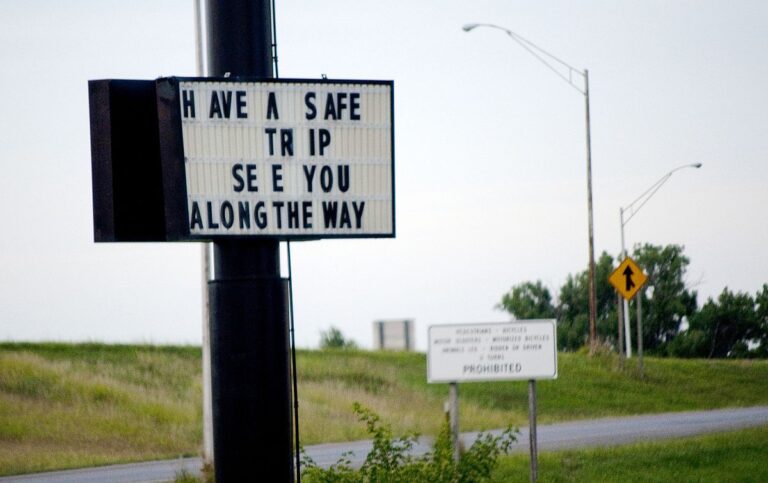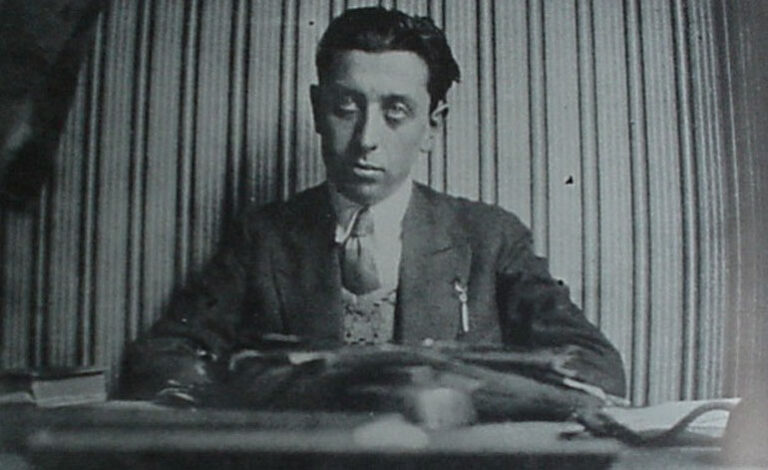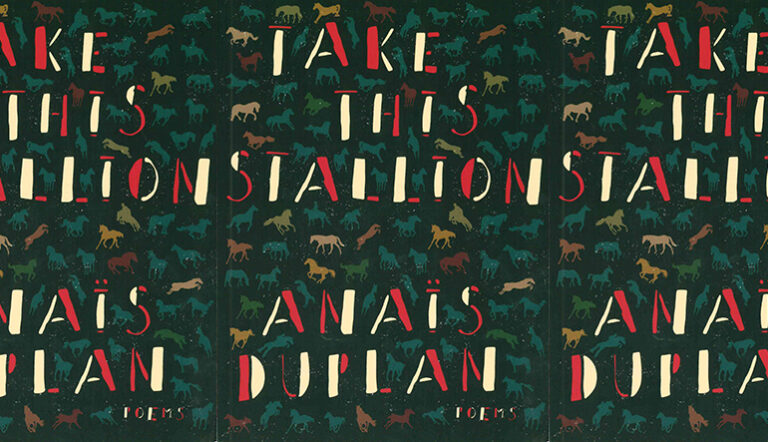Poet Activist Spotlight: Franny Choi

Poetry is a space in which logic plays a secondary role to imagination and feeling, and that can be a really great playground for a young person who is trying to define themselves and understand the world (i.e., all young people). —Franny Choi
I want to set a scene for you. It’s an offsite AWP reading for Write Bloody and the crowd is packed. I think it’s Minneapolis, 2015, but the conferences have started to run together for me. Franny Choi takes the stage and, as her press-mate sitting in wait of my turn to read (or perhaps having just read?), I am struck with one feeling: absolute jealousy, which is to say a selfish person’s version of awe. Franny performs her poem “Pussy Monster,” which rearranges the lyrics of a Lil’ Wayne song in order of word frequency and concludes with her emphatically saying the most frequently used word, “Pussy,” forty times. The thing that’s hard to transfer to the page about this moment is how she owns everything in it: how this song, which is literally about a speaker who fervently enjoys giving women oral sex, is reconfigured in a way that questions the power dynamics suggested by its diction, particularly in highlighting the I-centered, and often violent language used to discuss (and possibly justify?) participating in this intimate act. And it’s not just the words that are hers: it’s the whole room believing and participating in the act of asking questions about the language in “Pussy Monster.” For instance, in experiencing this poem, I find myself asking: Why does he say “I” and “me” so much in a poem about a sexual act often seen as giving?
 One of the things I admire most about Franny Choi’s work is the questions she asks. With her book Floating, Brilliant, Gone (Write Bloody, 2014), she asks questions about power, about the fluidity and intersectionality of identity, about the many shapes that grief takes when it comes to visit, and about how it feels to perceive and be perceived by the world, amongst others. Central to this questioning is a willingness to experiment toward answers—the forms varying from fairytale-like explorations (i.e. “The Well”), to gut-punching narratives, to more playful (but equally powerful) pieces like “Pussy Monster.” Funny, heartbreaking, and unpretentiously intelligent, Franny Choi’s poetry has quite deservedly received a good deal of positive attention at this early stage in her career. Her poems have appeared in Poetry Magazine, The Rumpus, The Journal, Southern Indiana Review, and elsewhere. She is a Kundiman Fellow, a graduate of the VONA Workshop, a recipient of Poetry Magazine’s Frederick Bock Prize, a finalist for the 2014 Ruth Lilly Poetry Fellowship, a Rhode Island State Council on the Arts Fellow, and is rumored to be a superhero. She is also a founding member of the multidisciplinary artists of color collective Dark Noise and a Project VOICE teaching artist. Basically, she is the coolest and smartest of the cool and smart kids.
One of the things I admire most about Franny Choi’s work is the questions she asks. With her book Floating, Brilliant, Gone (Write Bloody, 2014), she asks questions about power, about the fluidity and intersectionality of identity, about the many shapes that grief takes when it comes to visit, and about how it feels to perceive and be perceived by the world, amongst others. Central to this questioning is a willingness to experiment toward answers—the forms varying from fairytale-like explorations (i.e. “The Well”), to gut-punching narratives, to more playful (but equally powerful) pieces like “Pussy Monster.” Funny, heartbreaking, and unpretentiously intelligent, Franny Choi’s poetry has quite deservedly received a good deal of positive attention at this early stage in her career. Her poems have appeared in Poetry Magazine, The Rumpus, The Journal, Southern Indiana Review, and elsewhere. She is a Kundiman Fellow, a graduate of the VONA Workshop, a recipient of Poetry Magazine’s Frederick Bock Prize, a finalist for the 2014 Ruth Lilly Poetry Fellowship, a Rhode Island State Council on the Arts Fellow, and is rumored to be a superhero. She is also a founding member of the multidisciplinary artists of color collective Dark Noise and a Project VOICE teaching artist. Basically, she is the coolest and smartest of the cool and smart kids.
Stevie Edwards: How do you see the relationship between poetry and activism in your work? For instance, does one hold a higher importance to you or are they on an equal playing field? Does one feed the other or are they more symbiotic?
Franny Choi: I used to think of my poetry as activism. I thought I could call myself an activist just by writing poems that critiqued existing structures of power and generally aligning myself with a certain set of radical politics. That definition really changed after I started to work for an amazing community organization called PrYSM (the Providence Youth Student Movement), which supports Southeast Asian youth to be leaders in the local social justice movement. My five years of working and organizing in Providence taught me so much about both the power and the limitations of art. I learned pretty quickly that being a writer with great political analysis could never be a substitution for the hard, mostly unglamorous work of organizing a community. But there have also been times when my role as a poet has felt beautifully symbiotic with activism: when I’ve read poems at rallies or community-building events; when my comfort with language has been helpful in creating messaging around a campaign; the few times I’ve had the opportunity to lead poetry workshops in movement spaces. No poem can make shit move the way people power can. But I think poems are distinctly suited to create spaces for the fighters to heal, draw strength, and envision radical new futures.
These days, I’m living mostly adjacent to the movement, and not all of my poems are trying to be explicitly in conversation with the organizers on the ground. But trying to find and follow the arc that bends toward justice is a project of my life and therefore of my writing. I think my poems are almost always asking the question: What would it look like for this world to love us back? What would it look like to live in a world that saw us as people and not commodities, not vehicles for power or objects of pleasure? I guess what I’m trying to say is that these days, activism is more my compass than my practice, though I owe it everything, everything.
SE: You teach workshops using poetry as a means of talking about identity and power. I was wondering if you could talk a bit about why you find poetry to be a powerful medium for exploring these themes. I was also wondering if you’ve had any particularly moving or surprising experiences that have stuck with you while teaching these workshops.
FC: There are so many ways to answer this question! But what I’ll say this time is that poetry is a space in which logic plays a secondary role to imagination and feeling, and that can be a really great playground for a young person who is trying to define themselves and understand the world (i.e., all young people). I think most forces that students encounter are asking them to identify themselves in hard, logical terms—Which box do you check off? Which lunch table do you sit at? What block do you live on? What’s your SAT score? And poetry is this haven in which all lines are hazy, in which youth can define themselves on their own, illogical terms and have the result be something beautiful. Everyone calls you dangerous but you’re actually just the new moon trolling the horizon? Great. The only way to define your gender is with a list of flowering trees and spices? Perfect answer. In one of the first poetry workshops I ever taught, a fifth grade girl wrote the line, “My name is a concentrated hum in a yoga class.” And everyone, teachers and students, all said yes. Yes it is.
SE: What has your experience been like as part of the Dark Noise collective (along with Fatimah Asghar, Nate Marshall, Aaron Samuels, Danez Smith, and Jamila Woods)? How has being a part of that creative kinship affected your work? Also, are you all working on any collaborative projects?
FC: Dark Noise is an experiment in radical, intentional, democratic, POC love in a world that values competition and whiteness. I’ve become a better writer, reader, and teacher because of our four years together, and we’ve all helped each other advance in our artistic careers. But the biggest lessons by far have been around solidarity and community. Capitalism teaches us we need to be brutal and self-serving in order to survive; heteropatriarchy tells us the only real relationships are with blood family or heterosexual, monogamous life partners. I think much of our time in Dark Noise has been unlearning those myths by turning, fully, to each other.
In regards to projects, we have a chapbook coming out next spring on Organic Weapons Press, and we’re still working on creating more resources for writers and teachers in the face of police brutality and global terrorism. (We released this statement and this resource list earlier this year.) And a few more things are, quietly, in the works.
SE: In addition to Dark Noise, you’ve also been an important figure in the Providence Poetry Slam and are a teaching artist in Project Voice (with another rockstar list of collaborators: Elizabeth Acevedo, Phil Kaye, Sarah Kay, and Robbie Q. Telfer). I was wondering if you could talk a little about the importance of creative community?
FC: Without creative community, I would be a selfish, worthless, terrible little worm of a writer—more so than I am now, I mean.
SE: At the risk of asking what might sound like too obvious of a question, I was wondering (in light of your work with Project Voice) why you see helping young people find their voices through poetry as important. Also, I was wondering how/if writing and performing poetry has been empowering to you.
FC: I have no idea how to answer this question without sounding really obvious and trite, but I’ll say this: I remember how good it felt, as a young person, to share something I’d written and hear my peers or my teacher tell me it was good. I remember how exponentially more awesome it was to share a personal, vulnerable poem and have someone tell me that they’d really needed to hear it. To know what it felt like to be moved and to cultivate the ability to move others. To stand on a stage and say something, and have people not just clap politely but make guttural, bordering-on-sexual noises because they’re overwhelmed with grief or joy. There’s a kind of magic that that does to one’s sense of both self-worth and community, to one’s relationship to one’s body and to the space it takes up. Poetry doesn’t own that magic, but for many reasons, that’s where I happened to land, so here I am.
SE: What writers first got you interested in using poetry to explore identity politics? Are there any particular poems you read early on that you still carry with you and are influenced by?
FC: You know, I don’t love the term “identity politics,” though it does get used a lot. I think, at worst, it’s used as a way to pigeonhole or dismiss the work of POC organizers and cultural producers; at best, it’s a kind of shorthand for many things (anti-racist organizing, race/class/gender power analysis, caucusing based on affinity groups, etc.), which I think are worth distinguishing from one another. But. It’s true that I read a lot of poetry before reading anything that I felt spoke to my own experiences and identities. In high school, the first poet I really connected with was Allen Ginsberg (I got to say “cock” in class!), and it was only later that I would realize how my own queerness was present in that moment of recognition. In undergrad, I took two formal poetry classes and, I think, read one writer of color in all that time. So the first poets of color, the first API poets, the first QPOC poets I encountered, really, were through my school’s spoken word poetry group. Because of this, many of my early influences were my peers; and then, later, poets like Rachel McKibbens, Mahoghany Browne, and Kelly Tsai—women of color operating in the realm of spoken word. It was only later, much later, that I found the rich, vibrant, prolific community of poets of color publishing outside of performance poetry. Looking back, I resent that I didn’t read Patricia Smith or Aracelis Girmay until I was 24, after years of reading poem after poem by white men.
SE: A lot of times when people use the word “experimental” in regards to poetry, they mean something sort of esoteric and impenetrable. Some of your writing seems to experiment a lot with form and language (i.e. your poem “Pussy Monster,” in which you rearrange the lyrics of a Lil’ Wayne song in order of word frequency) in a way that I would say is pretty much the opposite of esotericism. In “Pussy Monster,” it seems to me that you’re re-positioning and asking questions of the power that the original text holds. Do you feel the occasion of writing poems that might be seen as using text in experimental ways as power-shifting? Or maybe something else entirely?
FC: Oh, I think all literary tactics can be used to uphold or challenge the status quo, formal experimentation included. Once, I went to a show where three white cis men passed a jug of milk between them while audio played of a (probably white cis) man reading totally impenetrable text (probably written by a white cis man), and then for 20 minutes, the white cis men kicked the empty milk jug back and forth while the audience fell asleep. And they weren’t even very good at kicking! So, like, that piece does absolutely shit to challenge anything except for maybe the idea that our time, comfort, existence, etc., are worthy of respect—which, of course, is the same story that cis white men have been telling for centuries. But you can use a shovel to bury something or to dig it up. There are lots of poets and performance artists who are using the tools of experimentation (which, at the end of the day, is just play) to excavate, expose, reclaim, and create moments of resistive joy. So, I’m Team Douglas Kearney and Bhanu Kapil. I think Team Milk Dudes has plenty of members already; they don’t need me.


